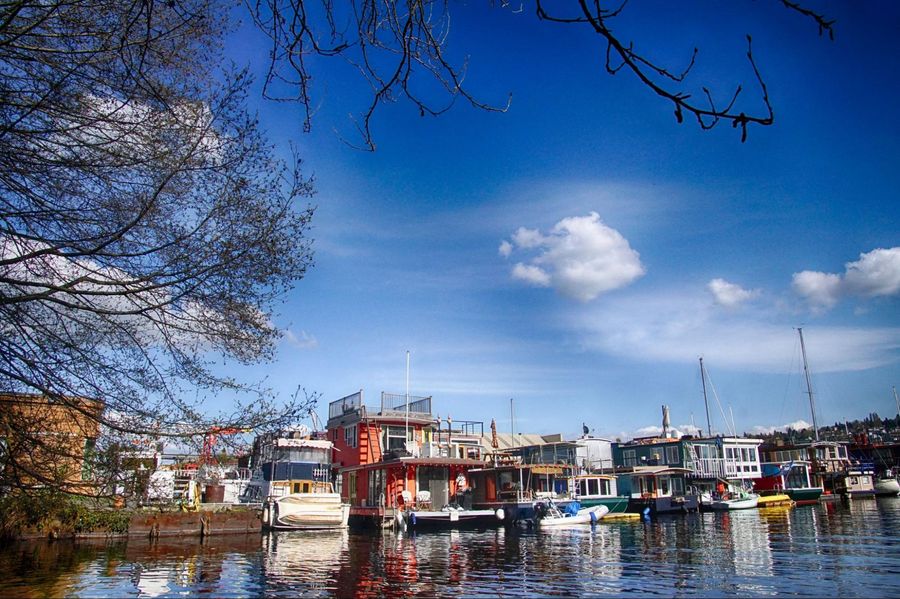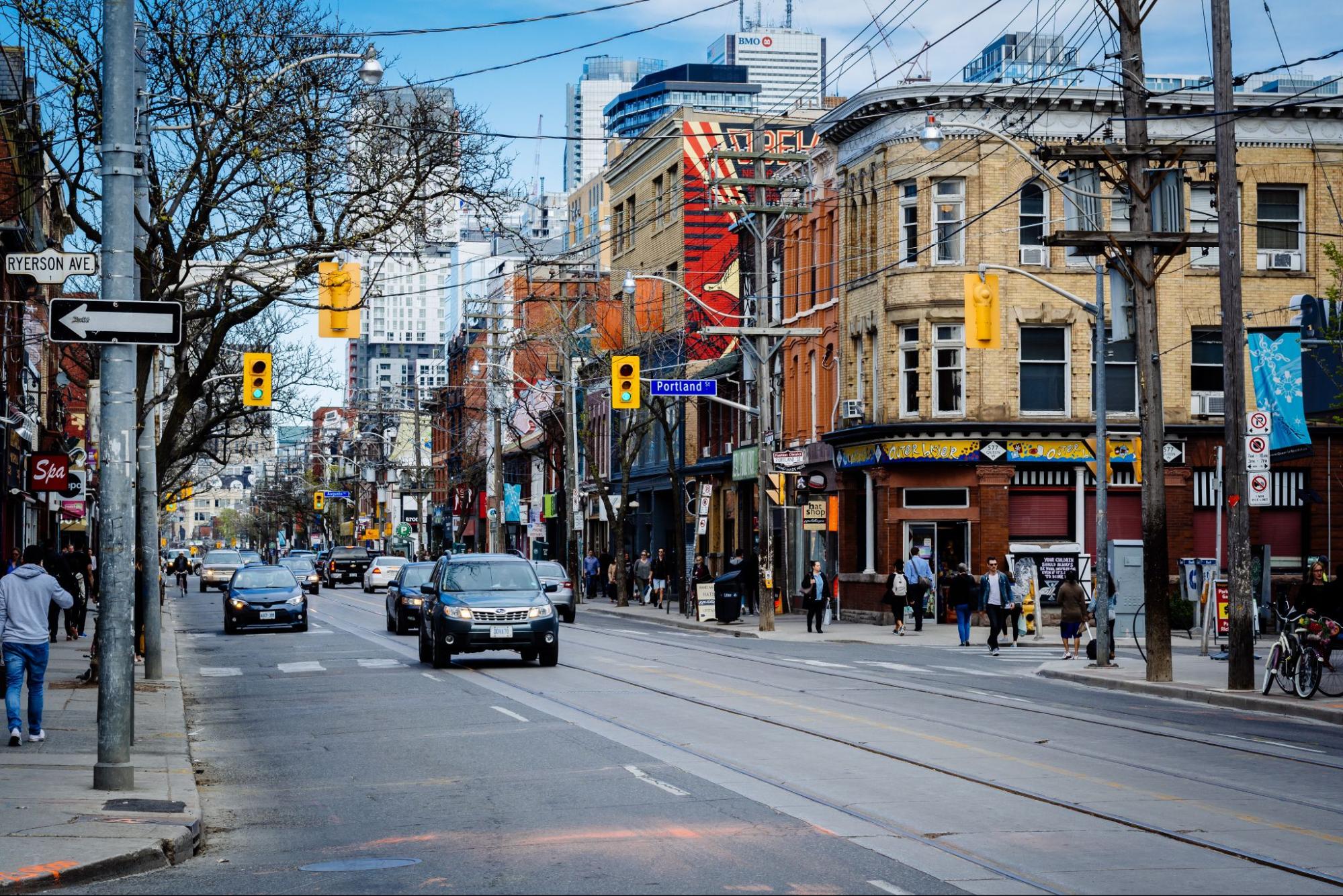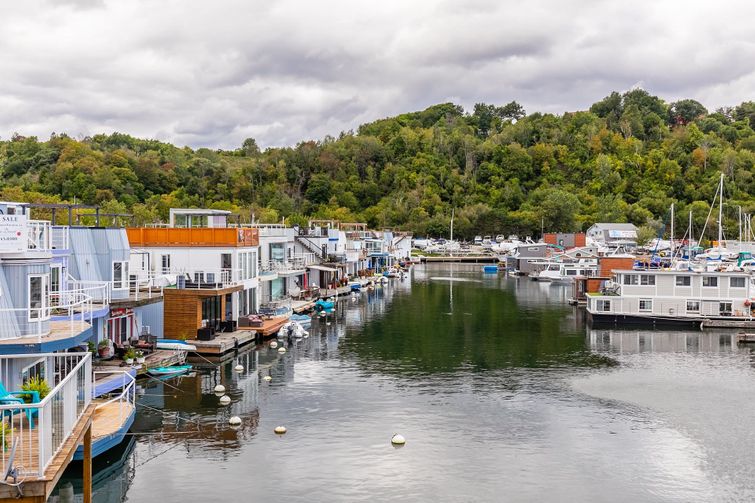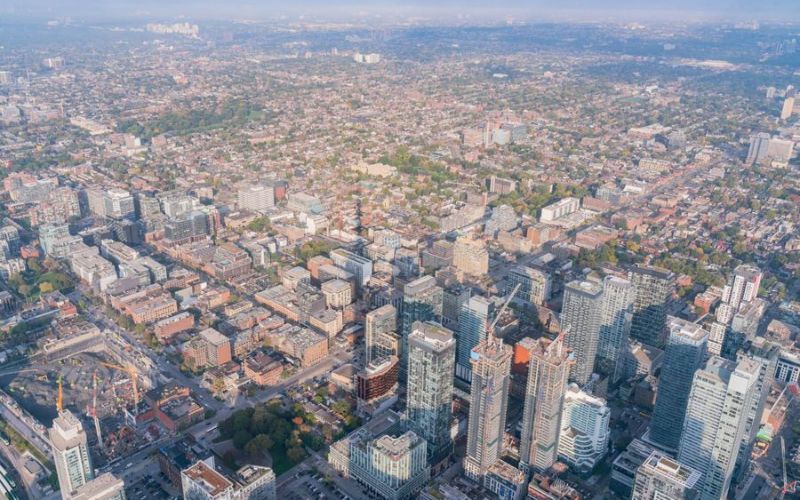Demand for real estate in the Toronto housing market is at an all-time high with the supply of homes struggling to keep up. If you are dead set on living in the city, maybe it’s time to start considering your other options.
Some people have already found a way to live in their dream home on the waterfront in Toronto and for even cheaper than a regular home in the city. How is this possible? Let’s explore the little-known world of houseboats in Toronto.
What are houseboats?
While some boats are made for things like fishing or sailing, houseboats are made specifically for living in. As a result, they look pretty different from the average boat. On the outside, they are very square and have siding, doors and large windows for lots of bright natural light. Inside, the boats feature complete living amenities such as a kitchen, a full bathroom, and at least one primary bedroom.
They also commonly feature air conditioning, heating, and a hot water tank. All houseboats have a main floor for living while some have multiple stories with additional bedrooms. Others have simply an upper deck. This upper deck or the front deck on the main level can be used as a sitting area with outdoor furniture.
Though they are still boats that can technically be moved around, most houseboats are generally kept in place. This means that living on a house board doesn’t mean a transitory lifestyle sailing the seas as you will spend most of your time tied to the dock
There are two other ways to live on the water, one being liveaboard boats, which generally means any boat that people choose to live on. While these are still homes for the people who live there, they are not necessarily purpose-built for living on.
The other kind is a float home, which is . A floating home is not technically a boat as it does not have any means of self-propulsion and almost always stays docked in place. Though floating homes are less common, they are able to have more luxury features like heated floors, propane stoves, fireplaces and more.
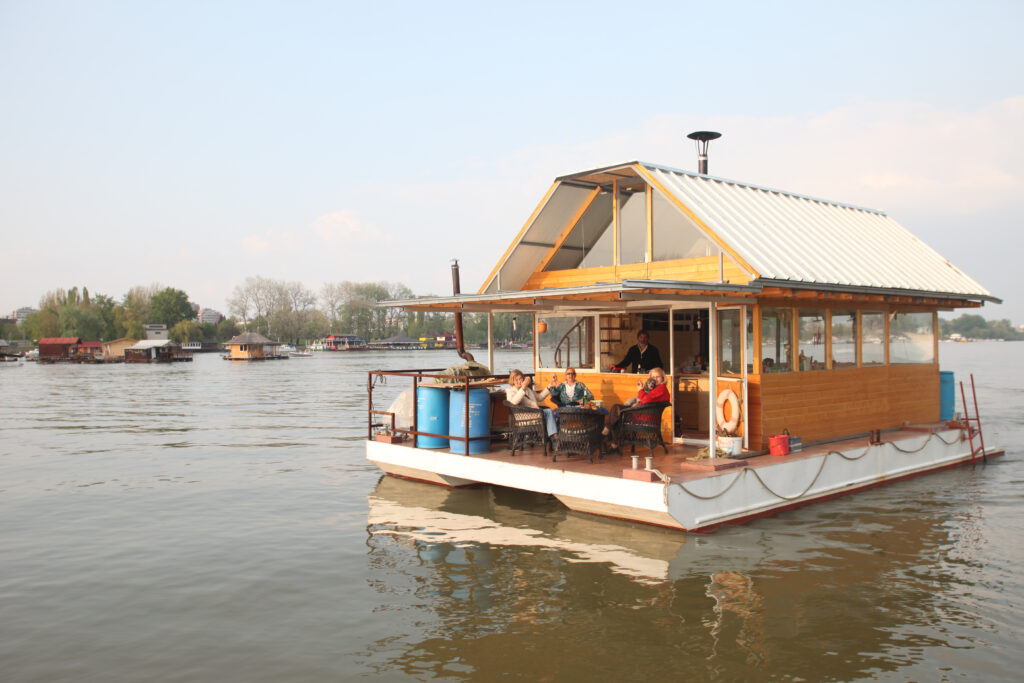
Are they legal in Toronto?
The question of whether or not houseboats are allowed in Toronto depends on where exactly you choose to stay as different marinas will have different rules. For many, living aboard is mainly done in the summer months, but no year-round residence is permitted.
However, there are a smaller number of marinas that allow for year-round liveaboard boats such as Bluffer’s Park and Marina Quay West. There are also other marinas around Lake Ontario that you may choose to settle at such as in Port Credit.
Keep in mind that there may also be certain licensing and insurance requirements for your vessel that may differ if you plan to liveaboard. It’s best to contact the marina you plan to stay at for the most specific information.
Why do people choose to live on houseboats?
There are a few reasons why people choose to live on houseboats. For one, they can be acquired for much cheaper than a home in the city.
Location is also a big factor. These boats are essentially one of the only ways to live waterfront in the city and many marinas are still located centrally enough to provide direct access to necessities on land.
Finally, the lifestyle onboard may be appealing to residents and is the reason why many people choose to stay aboard, particularly in the summer months. In some ways, a boat is a great and offers amazing views with lots of outdoor space to relax or enjoy water activities. In addition, marinas, where both recreational boaters and liveaboards mingle together, can be very positive and welcoming communities for those who choose to reside here.
How much do they cost?
The price of houseboats can vary greatly depending on the age and features of the boat. Houseboats in general can cost anywhere from $150,000 to $400,000 or more. For comparison’s sake, a condo in Toronto according to most recent statistics can cost around $680,000.
However, it’s worth mentioning that there are far fewer houseboats and marina slips in the city than there are condos, so actually finding one may be the hard part. You also can not get a traditional mortgage for a houseboat like you can for other real estate, which presents another challenge in buying one of these vessels.
In addition, there are some fees involved in owning a houseboat. You won’t need to pay any property tax, as you don’t technically own any property, though you may be required to pay a portion of the marinas annual property taxes. You will also need to pay docking fees at your Marina, which can cost hundreds per month. You may also need to pay other miscellaneous fees like winter storage, utility fees, fueling costs, paying for parking spots and more.
Corben joined CREW as a relative newcomer to the field of real estate and has since immersed himself and learned from the experts about everything there is to know on the topic. As a writer with CREW, Corben produces informative guides that answer the questions you need to know and reports on real estate and investment news developments across Canada. Corben lives in Guelph, Ontario with his partner and their two cats. Outside of work, he loves to cook, play music, and work on all kinds of creative projects. You can contact Corben at corben@crewmedia.ca or find him on Linkedin at https://www.linkedin.com/in/corbengrant/.


